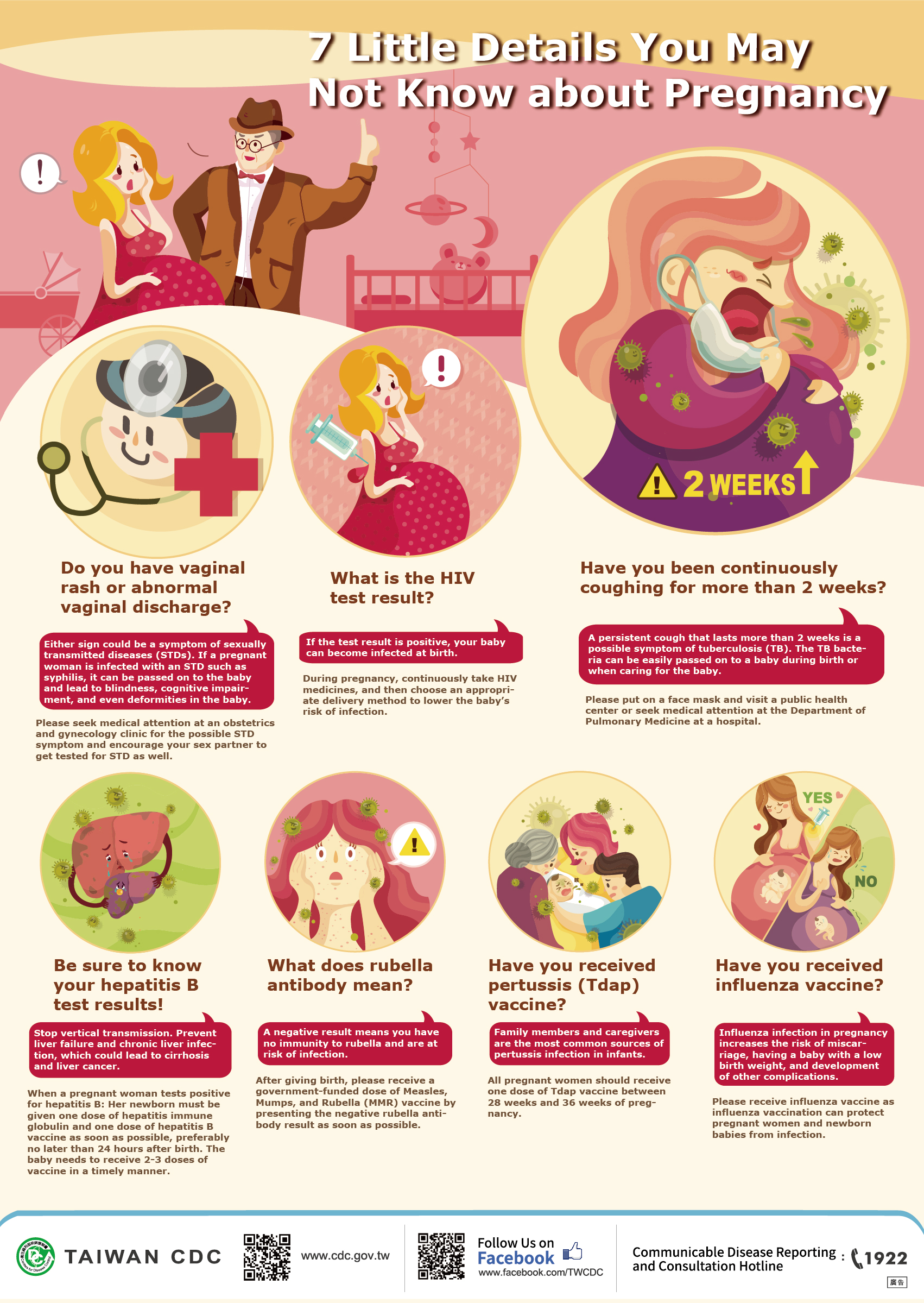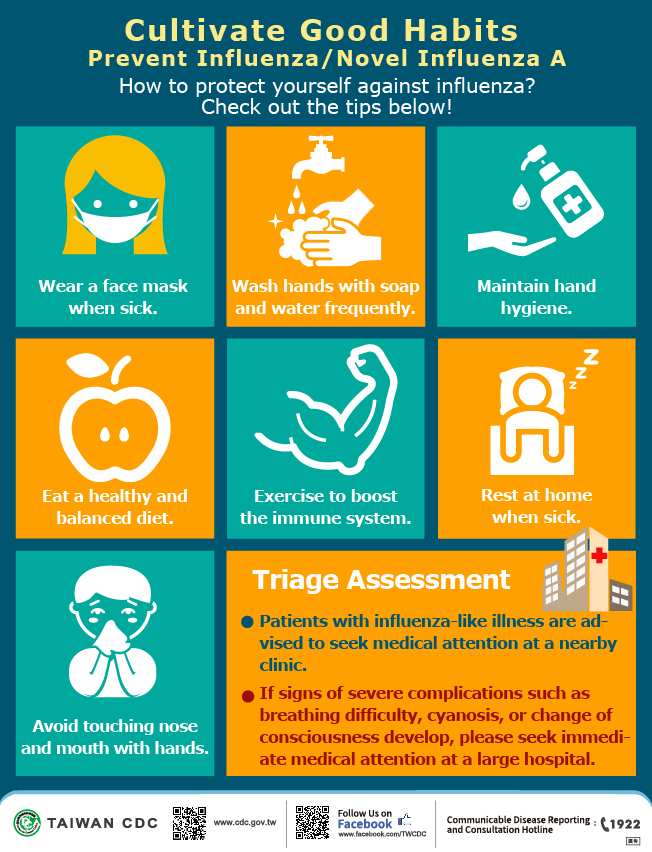Influenza
Background
- Influenza is a contagious respiratory illness caused by influenza viruses. It can cause mild to severe illness. Serious outcomes of influenza infection can result in hospitalization or death. People with the influenza often experience symptoms such as fever, cough, sore throat, a runny nose, muscle aches, and headaches. Most individuals recover within a few days to less than two weeks. However, certain groups, including older adults, young children, and people with certain health conditions, like chronic diseases, are at high risk for serious influenza complications (such as pneumonia, encephalitis etc.).
- There are four types of influenza viruses – A, B, C and D. Influenza A and B viruses are responsible for seasonal influenza epidemics each year. Influenza C and D is detected far less frequently and generally cause milder illness. Type A influenza viruses are further classified into subtypes based on their surface proteins. The A(H1N1) and A(H3N2) subtypes are currently circulating among humans. Influenza B viruses are classified into two lineages: B/Yamagata and B/Victoria. However, B/Yamagata lineages have not been detected worldwide since 2020 and have been suggested to be removed from the vaccine compositions for recent influenza seasons.
Epidemiology
Influenza occurs globally with annual attack rates estimated at 5%–10% adults and 20%–30% in children. Worldwide, these annual epidemics are responsible for an estimated 3-5 million cases of severe illness, and 250,000-500,000 deaths each year. In Taiwan, about 0.5% of outpatient influenza cases require hospitalization. Among those hospitalized with severe complications, approximately 7% need intensive care, and the mortality rate in this group is about 20%.
There are several influenza Surveillance systems in Taiwan. Latest surveillance report is available in following links:
- Taiwan National Infectious Diseases Statistics System (NIDSS)
- Influenza Express
- Taiwan CDC Open Data Portal
- Viral Infectious Diseases Contract Laboratories
Prevention and Control
- Annual Vaccination
The most effective best way to prevent influenza is through annual vaccination. Taiwan CDC recommends vaccination for individuals at high risk of severe complications, as well as for those who live with or care for high-risk groups. These include:
- Children and adolescents aged 6 months -18 years, especially those <5 years
- Adults aged 50 years and older, especially those aged ≥65 years
- Residents and staff of nursing homes and long-term care facilities
- Pregnant women at any stage of pregnancy
- Parents of infants younger than 6 months
- Individuals with chronic medical conditions, including those with obesity (BMI≧30), rare diseases, or catastrophic major illness
- Healthcare workers and public health personnel
- Childcare providers, including kindergarten staff and daycare workers
- Poultry farmers and animal health inspectors.
- Personal Hygiene
Practice good personal hygiene, including frequent handwashing with soap and water, and covering the nose and mouth with a tissue or elbow when you coughing or sneezing.
- Early Medical Attention
Seek prompt medical care if when respiratory symptoms such as fever, cough, sore throat and running nose develop, to prevent complications such as pneumonia, encephalitis, or worsening of chronic diseases.
- Self-Isolation When Ill
When sick, stay home to reduce transmission. Wear a mask in public, and cover your nose and mouth when coughing or sneezing in order to protect others from infection.
Seasonal Influenza Vaccine
- Influenza vaccination is the most effective way to prevent influenza. In healthy adults, seasonal influenza vaccines provide approximately 30-80% protection, while in older adults, protection is around 50-60% against infection and severe disease. In addition, vaccination been shown to reduce the risk of death among older adults by up to 80%.
- The government-funded seasonal influenza vaccination program is launched in October annually in Taiwan. For the current influenza season, Taiwan CDC purchased about 6.5 million doses of trivalent influenza vaccine. The antigenic strains of the vaccines purchased for the current influenza season are consistent with World Health Organization Northern hemisphere recommendations.
Treatment
- The majority of currently circulating seasonal influenza viruses are susceptible to the neuraminidase inhibitor antiviral medications—oseltamivir, zanamivir and peramivir; however, sporadic cases of oseltamivir and peramivir-resistant influenza viruses have been detected worldwide in recent years. Antiviral treatment with a neuraminidase inhibitor is recommended as early as possible for patients with confirmed or suspected influenza who have severe, complicated, or progressive illness; who require hospitalization; or who are at greater risk for influenza-related complications.
- The government-funded influenza antivirals are provided to eligible patients, including:
- Reported cases of severe or complicated influenza
- Reported cases of novel influenza A virus infection
- Patients hospitalized (including those awaiting admission in the emergency department) with confirmed or suspected influenza
- Influenza-like illness (ILI) patients in the age groups under 5 years old or 65 years and older, with clarified operational age definitions (“calendar year” minus “birth year” <6 or ≥65)
- Pregnant women and women within two weeks postpartum
- Obese individuals (defined as BMI ≥ 30), or children/adolescents under 18 whose BMI exceeds the 95th percentile for age
- Patients with major illnesses or catastrophic diseases, patients with immunodeficiency or under immunosuppressive therapy, patients with chronic medical conditions that increase the risk of influenza complications
- Patients involved in influenza clusters, or those with exposure history to confirmed or probable novel influenza A cases
- Personnel involved in culling or cleaning operations at sites of animal influenza outbreaks (e.g., avian or swine influenza)
- In addition, during influenza epidemic period, an expanded use policy is implemented. The government-funded influenza antivirals will be provided to influenza-like illness (ILI) patients who are considered high-transmission groups, such as students, day care workers, etc.
FAQs
- What is seasonal influenza?
- Seasonal influenza is caused by influenza viruses, that infect the nose, throat, and lungs. Unlike many other viral respiratory infections, such as the common cold, the influenza can cause severe illness and life-threatening complications in vulnerable individuals.
- When is the influenza epidemic period in Taiwan?
- In Taiwan, influenza activity typically increases during winter months, from late November through March, with peak transmission often occurring around the Chinese New Year. The overall impact of each influenza season—measured by infections, hospitalizations, and deaths—varies from year to year. Taiwan CDC continuously monitors circulating influenza viruses and disease activity, and publishes weekly surveillance updates, known as the “Influenza Express”from October through May.
- How does influenza spread?
- Influenza viruses are primarily transmitted from person to person through respiratory droplets produced when an infected person coughs, sneezes, or talks. These droplets can enter the mouths or noses of people who are nearby, or possibly be inhaled into the lungs. Less commonly, a person can become infected by touching surfaces or objects contaminated with the virus and then touching their own mouth, nose, or eyes. To reduce the risk of infection, it is important to avoid close contact with people who are sick, stay home if you are ill, and wash hands frequently with soap and water, or use hand sanitizer when soap is unavailable.
- If I have influenza, do I need to report to Taiwan CDC?
- In Taiwan, seasonal influenza is not a notifiable disease, so mild influenza cases do not need to be reported. However, “Severe Complicated Influenza” is classified as a Category IV Notifiable Diseases. Patients who develop serious influenza complications requiring ICU care, as well as influenza-associated death, must be reported to Taiwan CDC within one week.
More information
- Taiwan National Infectious Diseases Statistics System (NIDSS)
- National Notifiable Disease Surveillance System
- WHO: Influenza (Seasonal)
- USCDC: Seasonal Influenza: Flu Basics
圖片


發佈日期 2025/9/24

